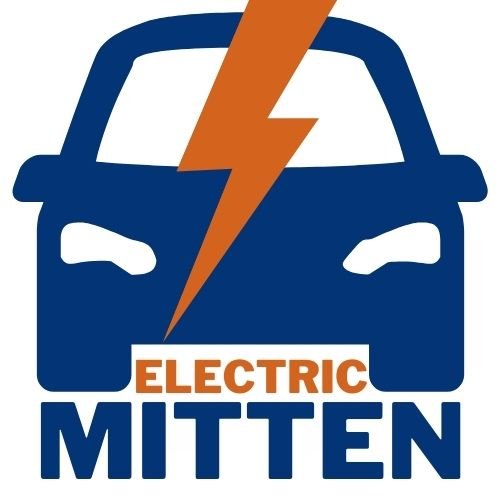Geneva 2019 - VW I.D. Buggy
VW has unveiled their all-electric tribute to the Dune Buggy, the aptly named VW I.D. Buggy Concept. Check it out in the galleries below.


















Press Release:
Wolfsburg/Geneva – March 4, 2019. Today Volkswagen introduced the next member of the ID. concept family at the 89th Geneva International Motor Show—the ID. BUGGY. Drawing inspiration from the classic Californian dune buggies of the 60s, the ID. BUGGY shows the versatility of the modular electric drive matrix (MEB) and puts the fun in functional.
ID. BUGGY is at once futuristic and retro. The MEB chassis integrates a 62kWh lithium-ion battery into the floor and a 201-horsepower electric motor in the rear to give it an expected range of 155 miles on the WLTP cycle. The minimalistic design—no doors or roof on this two-seater—gives drivers the purest experience of classic beach cruising.
Like the dune buggies of the 60s, ID. BUGGY is extremely versatile. All buggies from the 60s featured a high degree of modular variability—based on the chassis of the legendary Beetle with a four-cylinder boxer engine running at the rear. Small-series manufacturers stretched a body made of fiberglass over the chassis and engine of the Beetle, thus writing automotive history. The same versatility is possible with ID. BUGGY—while the ID. BUGGY concept car is a pure 2-seater; it can also be converted to a 2+2-seater and an additional electric motor could be added to the front axle in order to make four-wheel drive possible. In addition, the BUGGY’s modular design allows for the composite upper body to be detached from the MEB chassis, opening up a world of possibilities for third-party manufacturers, as the original Meyers Manx kit did for the first buggies.
Exterior
Like the classic Beetle and Bus, ID. BUGGY has no need for a grille, and yet the summer cruiser is instantly recognizable as a Volkswagen. The prominently raised hood, fenders and tail end hint at the concept’s off-road chops, while three-dimensional oval LED headlights and taillights, an LED VW logo, and a body that seems to float above the chassis lend an air of approachability.
The floating effect is created by the use of two colors next to each other. The top half of the car—most notably the striking fenders and shoulders—is painted in matte Fern Green, while the bottom portion is painted in a textured Grey Tech Blue. The green part visually floats above the dark blue area.
ID. BUGGY is equipped properly for an all-terrain vehicle. It features standard 18-inch wheels and BFGoodrich All-Terrain T/A® off-road tires (255/55 at front and 285/60 at rear). A solid aluminum underbody guard ensures that the front axle and ancillaries are not damaged during off-road driving, and the aluminum side sill panel assumes the function of an additional underbody guard. Should another vehicle need a tow or should the BUGGY itself be incapacitated, two robust red steel eyelets are integrated in the bumpers.
The reinforced windscreen frame and the Targa bar, which is also open at the side, provides rollover support. There are no doors and no roof, but a black tarp can be stretched between the windscreen frame and the Targa bar as a sun shield or as light weather protection.
The open concept car is 160.0 in long, 74.4 in wide and 57.6 in high, featuring short front and rear overhangs (27.0 and 28.6 in respectively). The wheelbase is 104.3 in and ground clearance is 9.4 in.
Interior
The ID. BUGGY’s minimalist interior is characterized by easy handling and waterproof materials. All elements surrounding the exterior are a continuation of the body, painted in Fern Green, while the majority of the interior trim is finished in a robust Grey Tech Blue soft-touch paint. The driver and passenger sit on seats with headrests and belt guides integrated into the backrests, while the floor plate is outfitted with anti-slip knobs.
Despite the shortened wheelbase of the concept car, passengers have an unusually large amount of space. This is due to the ID. family’s compact electric drive and axles arranged further to the outside. This open space always provides room that is about one class above that of comparable cars with a conventional drivetrain.
The minimalistic cockpit has been designed to match the character and design of the ID. BUGGY. With the “Hey you” display in the cockpit, the concept car greets its driver and draws attention to the fact that it is ready for operation. A hexagonal steering wheel, covered with water-repellent Nappa leather, features touch controls in the crossbar, and a digital instrument cluster keeps the dash uncluttered.
Electric drive
The zero-emissions drivetrain of the ID. BUGGY is made up of the electric motor integrated in the rear axle, power electronics, a single-speed gearbox, the high-voltage flat battery (62 kWh) arranged in the car floor to save space, and the additional units integrated in the vehicle front end. The electric motor delivers 201 horsepower and maximum torque of 228 lb-ft from standstill. This means that the electric vehicle always provides enough power on the rear axle, even off-road. With full acceleration on paved slopes, the concept car sprints from zero to 62 mph in just 7.2 seconds. The maximum speed is electronically controlled at 99 mph.
As an alternative to the rear-wheel-drive layout, it is also possible to fit a second electric motor in the front axle of the ID. BUGGY. In this case, an “electric propshaft” would distribute the power of the 4Motion® four-wheel drive between the front and rear axles in fractions of a second.
Regardless of rear drive or four-wheel drive, power electronics control the high-voltage energy flow between the engine and battery. The power electronics convert direct current (DC) stored in the battery into alternating current (AC). The on-board electronics are supplied with 12V via a DC/DC converter. The position of the battery in the vehicle floor gives ID. BUGGY a lower center of gravity for better handling.













